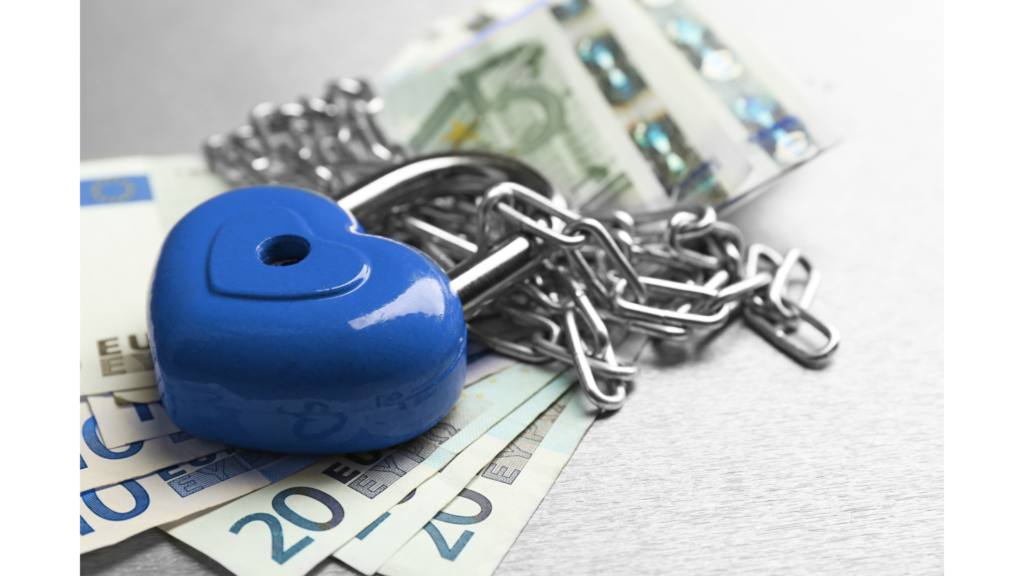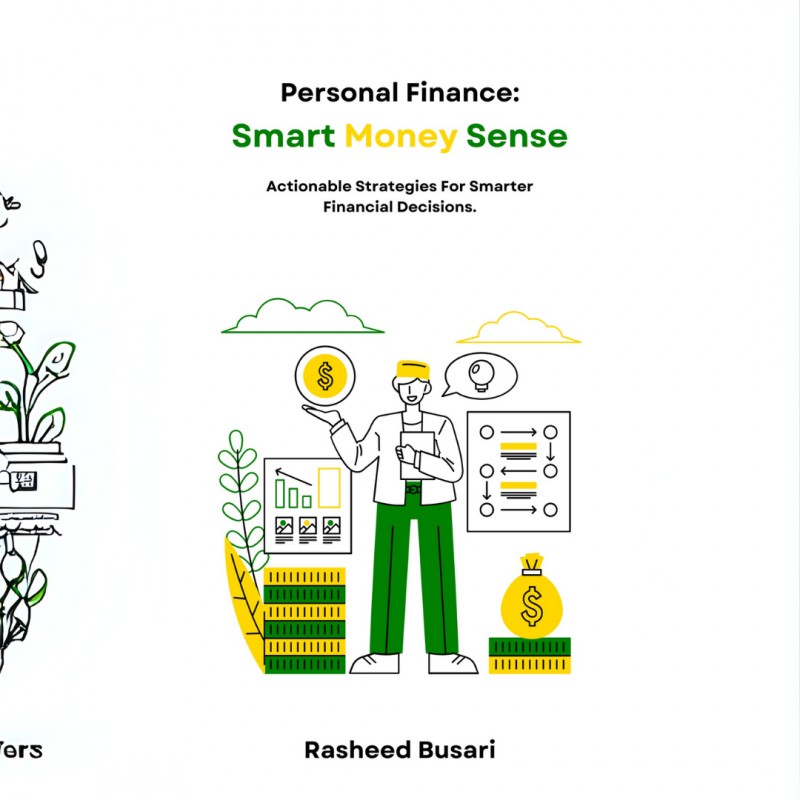Last Updated on 21/10/2025 by Rasheed Busari
Introduction
Mr. Akintola, a 40 year old seasoned banker with 15 years of professional experience, found himself in a reflective conversation with his younger colleague, Olawale, age 35, who has worked for nine years in the same industry. The topic? Real estate and financial security
To Mr. Akintola’s surprise, Olawale had successfully completed his 5-bedroom duplex at just 35 years old. Meanwhile, despite being in the workforce for 19 years, Mr. Akintola was still grappling with the slow, unfinished construction of a 3-bedroom flat he had started building over a decade ago.
This story is far too common. Many corporate professionals in Nigeria and across the world are experiencing the same financial stagnation. They earn decent salaries, receive promotions, and climb the corporate ladder, yet their finances tell a completely different story. The missing link isn’t the amount earned, but the lack of financial discipline and a deep understanding of financial security and financial stability. Understanding and living by these two principles is essential if you want to achieve financial independence, retire early, and build generational wealth.
The truth is, every small, intentional financial step you take today will shape your financial future. It takes courage to break free from the habit of procrastination, but the key is to start now. Remember, financial success isn’t a one time event, it’s the result of consistent, informed, and wise financial decisions made over time.
In this article, we’ll walk you through a practical roadmap and the key habits you need to develop to attain financial security and stability by age 40 (or earlier). The ultimate goal of personal finance knowledge isn’t just to help you save or budget, it’s to empower you to handle emergencies and meet your basic needs without stress.
“Take control of your money. Empower yourself with financial knowledge. Commit to these small but impactful actions today, and watch your finance secured.”
Financial Security
Financial security is the foundation for financial stability and financial independence. It means having enough income, assets, and resources (material and immaterial) to cover your basic living expenses and protect yourself against unexpected financial shocks. The focus of this concept is to be able to meet up with the physiological needs (food, clothing, shelter) and safety needs (unexpected situations and emergencies).

Key Features:
- You can pay your bills on time.
- You have an emergency fund (3–6 months of expenses).
- You’re not overly worried about money day-to-day.
- You may still depend on your job for income.
- Do you have health or life insurance?
Example:
You earn enough income to pay rent, utilities, groceries, and have some savings for emergencies like medical bills, car repairs, etc.
Call to action for Financial Security
Assess yourself and your current situation honestly to confirm if your current income and resources can pay rent, utilities, groceries, and have some savings for emergencies like medical bills or car repairs.
Attaining financial security should take 1-3 years of working as a corporate person or an entrepreneur.
If you answered “Yes” to the above call to action, you likely have financial security.
Financial Stability
Financial stability is a broader, more sustainable state where your finances are not only secure but also consistent and under control over the long term. This is a state where your income conveniently covers all your expenses, and debts are manageable, and you have the confidence to manage any economic and financial situations.

Key Features:
- You have little or no debt (or manageable debt like a mortgage, term loan).
- You have multiple income streams or consistent income.
- Your spending (expense) is in line with your earnings.
- You can plan for future goals (e.g., buying a home, education, vacation, luxury lifestyle, early retirement).
Example:
You’ve paid off most of your debts, have investments and income growing steadily, and can confidently plan for long-term financial goals.
Call to action for Financial Stability
Assess yourself and your current situation honestly to confirm if your current income and resources can pay off most of your debts, have investments and income growing steadily, and can confidently plan for long-term financial goals.
Attaining financial stability should take 5-10 years of working as a corporate person or an entrepreneur.
If you answered “Yes” to the above call to action, you likely have financial stability.
Financial Independence
Financial independence is the ultimate goal in personal finance. It means having enough assets, investments, or passive income to support your lifestyle without needing to work actively for money. Attaining this feat takes a lot of discipline, commitment, accountability, resilience, and most importantly, understanding how to make money. Financial independence is a journey, not a destination.

Key Features:
- Your investments/passive income cover all your living expenses.
- You work by choice, not necessity.
- You are free from financial obligations and can make life decisions without monetary constraints.
Example:
You have rental properties, dividends, or other investments that generate enough income to support your lifestyle, so you no longer have to work unless you want to.
Call to action for Financial Independence
Assess yourself and your current situation honestly to confirm if your income (passive income) and resources (assets), without relying on active income from a job or income from your business, can afford you to live the life of your dreams (comfortable living, luxury lifestyle, vacation, choice, and luxury living)
Attaining financial security should take 1-3 years of working as a corporate person or an entrepreneur.
If you answered “Yes” to the above call to action, you likely have financial security.
“The key is starting early, staying disciplined, and avoiding costly mistakes.”
Roadmap and Behaviors to Achieve Financial Security and Stability by Age 40
Achieving financial security by age 40 or even earlier is not just a dream. It is a realistic and powerful goal, especially for corporate professionals and entrepreneurs who are intentional about their finances. With the right behaviors, disciplined habits, smart planning, and consistent execution, you can build a strong financial foundation that protects you from economic shocks and sets you up for long term success. Below are key behaviors and action steps to help you achieve and sustain financial security and financial stability:

Understand your Income and Expenses (Spending)
- Know what you earn from all your sources of income (active and passive income)
- Buy what you need, not what you want.
- Classify your expenses and prioritize in order of need and importance
- Make sure your expenses are in line with what you earn (income)
- Don’t rely on one salary; build multiple streams of income (active and passive income).
- Have a budget for all your plans, actions, and goals, and stick to the budget plan.
- Know where every penny goes: track income, expenses, savings, and debt.
- Have annual or quarterly financial reviews.
- Adjust your plans based on changing life goals or circumstances.
Set a SMART Financial Goal
- Avoid financial secrecy; it leads to conflict, financial loss, and poor planning. Be open and transparent with your spouse and children about your finances, savings, and assets.
- Set money goals with your spouse, partner, and children.
- Let your goal be specific, e.g., I want to be a landlord by age 35
- Make your goal measurable, e.g, I want to save N100,000 per month for the next 2 years towards the acquisition of land.
- Let your financial goal be achievable and easy to meet. For example, can my current income afford to save N100,000 per month?
- Make sure your financial goal is relevant and the result can be tracked.
- Is your financial goal time bound? For example, make sure you set a time frame for your financial goal. Like, I want to save towards N100,000 for the next 2 years towards the acquisition of land.
- Break your financial goals into short term, mid term, and long term for tracking and monitoring.
- Revisit and adjust your goals regularly
Financial Education and Knowledge
- Learn about the country and the economy of your country
- Be up-to-date on Government policies, regulations, and laws relating to finance and economy
- Learn about CBN policies, interest rates, and inflation rate.
- Learn about the magic power of compounding as it relates to savings and investing.
- Subscribe to or read blogs/websites relating to governance, policy, finance, and economy.
- Follow social media handles that discuss personal finance, governance, policy, and economy.
- Invest heavily in anything that will enhance your personal finance skills and knowledge.
- Learn how to make multiple streams of passive income
- Learn about investments that guarantee principal repayment, like treasury bills and mutual funds.
- Teach your children about money and savings at an early age.
- Encourage, implement, and normalize open discussions about money in your household.
- Build a strong professional network for opportunities.
Live Moderately and Below Your Means
- Spend less than you earn.
- Avoid lifestyle inflation.
- Say NO to peer pressure and social comparison
- Spend according to needs and prioritize according to importance
- Understand the difference between needs, wants and impulsive buys.
- Avoid reckless spending (luxury cars, expensive weddings, impulsive investments).
- Avoid get rich quick schemes (Ponzi, crypto, etc.)
- It’s not how much you earn, but how much you keep that matters.
Start Saving Early, Aggressively, and Consistently
- Save 20–30% of your monthly income (or more, if possible) depending on your expense level
- Open a separate savings account (target savings account, fixed deposit account) that will give interest more than the deposit savings rate.
- Build an emergency fund (3–6 months of basic expenses) that can cater for any emergencies (job loss, health issue, natural disaster like flood, etc.)
- Have a savings of 1-3 years of net salary in a high-yield savings account to cater for emergency like job loss.
- Do not leave your funds idle, make sure your funds work for you at all times by saving in high yield accounts.
- Open a Retirement Savings Account (RSA) via a Pension Fund Administrator to cater for the post-retirement period
- Open a Voluntary contribution Account (VC) via a Pension Fund Administrator to augment the mandatory Retirement Savings Account (RSA) to cater for the post-retirement period
- Operate a joint account with your spouse or partner as a way to achieve quick savings towards a financial goal.
Invest Early and Regularly
- Don’t wait for “big money”, start early and invest little by little, consistently.
- Start with mutual funds or treasury bills.
- Invest in high income skills or certifications.
- Avoid get rich quick investment that promises bogus returns: gambling, Ponzi schemes, Crypto, etc.
- Build for the long term to take advantage of compounding investing.
- Invest in assets and resources that give passive income
- Buy and invest in assets that are liquid, i.e, assets that can be easily turned into cash.
- As you grow and attain financial stability, explore stocks, real estate, and other high risk investments, as it is believed that, the higher the risk, the higher the return.
- Start a children’s investment plan for your children to take care of their higher education
Avoid Bad Debt
- Avoid loan apps with high interest (e.g., “quick cash” platforms).
- Say NO to buying luxury items or Aso Ebi on credit.
- Use good debt for productive assets (e.g., business or real estate).
- Pay off credit card debt and high interest loans quickly.
- Use debt only if it improves your future financial position (e.g., business, income generating real estate).
- Keep your debt-to-income ratio low.
Get the Right Insurance
- Health insurance (NHIS or HMO plans).
- Life insurance if you have dependents.
- Car and home insurance to protect valuable assets.
- Property insurance to protect your building.
- Job insurance in case of job loss
- Use insurance to manage risk, not avoid it.
- Pay insurance premium early to cover the insurance period.
- Think long term, What happens to your dependents if you’re dead or not around?
- Use estate planning (will or trust) if you have significant assets.
Conclusion
Financial security and financial stability by age 40 or even earlier aren’t reserved for a fortunate few. They are the result of intentional planning, disciplined action, and unwavering consistency. Those who enjoy a life of financial peace and freedom didn’t stumble upon it by chance, they built it, step by step, from the very beginning.
No matter your current financial position, it’s never too late to take control. The sooner you start making smart money decisions, the easier it becomes to build momentum toward lasting financial security and financial stability. With the right habits and mindset, you can create a future where you’re not just getting by, but truly thriving, confident, prepared, and financially free.
By applying the strategies discussed in this article, you’ll be better equipped to navigate challenges and take advantage of opportunities. Your journey to financial security and financial stability starts today, take that first step with purpose.






Pingback: How to Use a Loan App Without Falling Into Debt Trap. - THE FINANCIAL THRIVE
Pingback: Profitable Side Hustle Ideas for the Working Class to Boost Income - the financial thrive
Pingback: How to Write a Business Plan That Banks and Investors in Nigeria Will Actually Fund. - the financial thrive
Pingback: Personal Finance: More Than Just Money, It’s Life Planning - the financial thrive